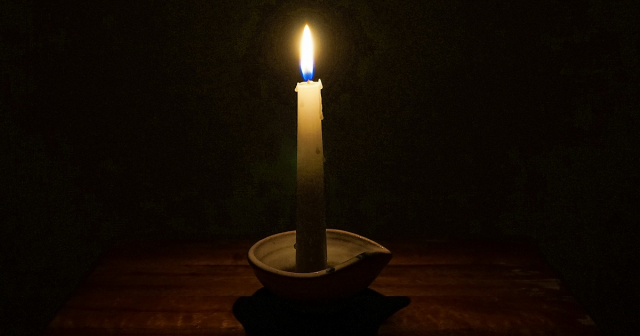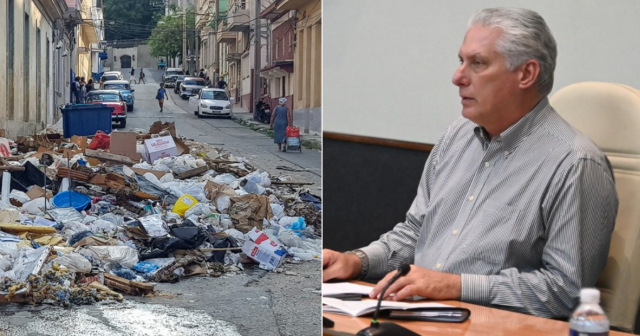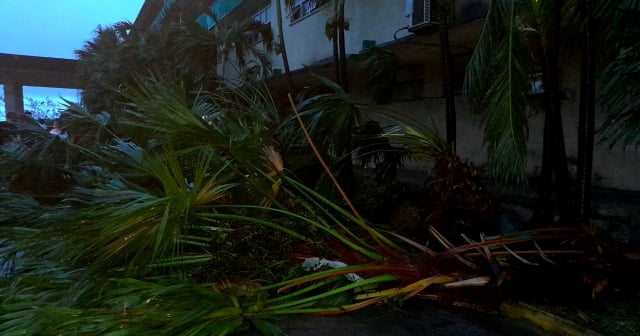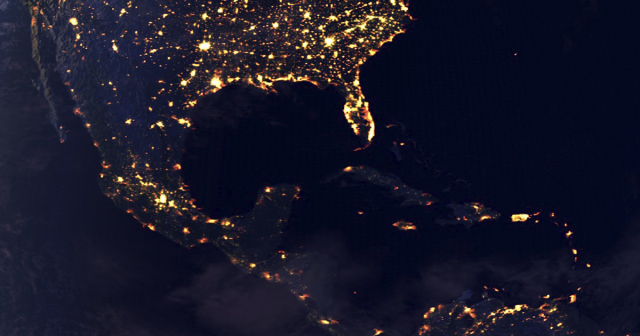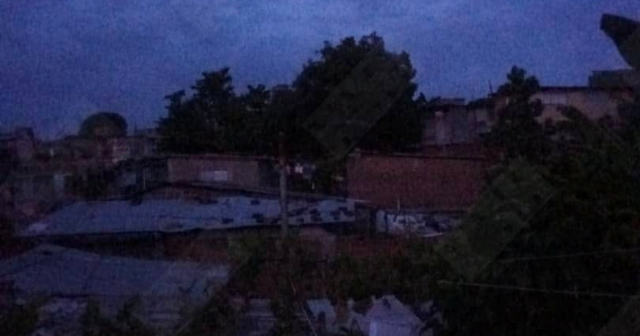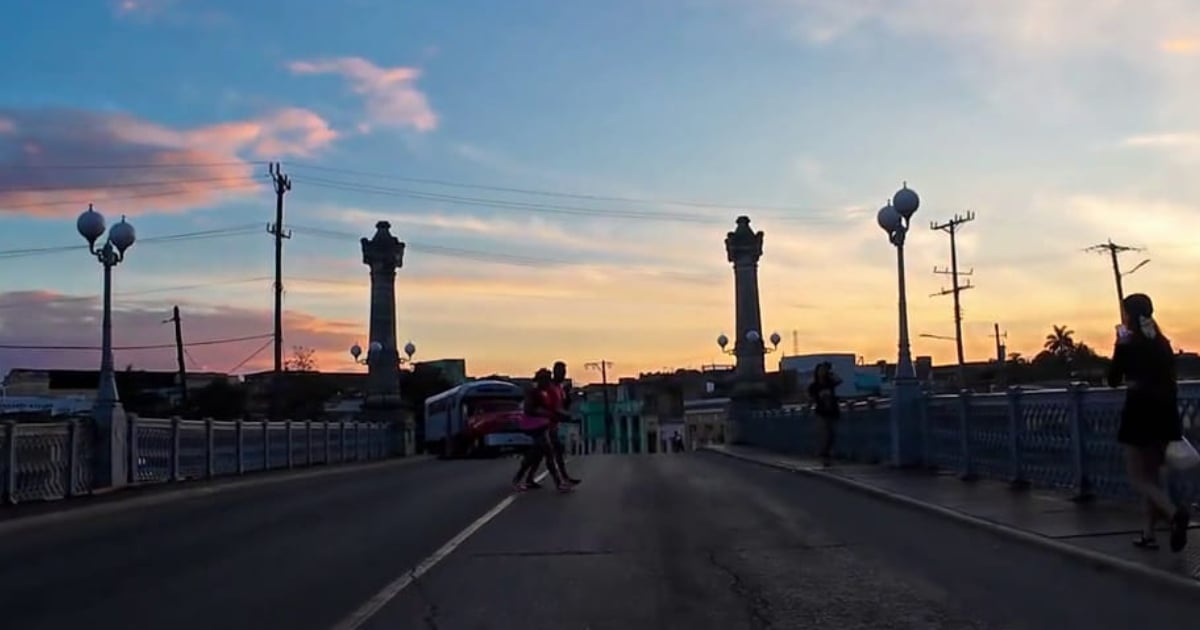
Tropical Storm Rafael is approaching the western part of Cuba, threatening to make landfall in the coming hours as a hurricane. Meanwhile, the population continues to endure widespread and prolonged power outages that hinder their preparation for emergency situations.
In light of this situation, many Cubans are calling for the restoration of electrical service and denouncing the lack of foresight from the authorities. They recall that the blackouts virtually cut off communication in Eastern Cuba during Hurricane Oscar, a negligence that cost human lives in San Antonio del Sur and left a devastating scene with thousands affected in Guantánamo.
"It's been more than fourteen hours during which we should have been informed, gathering water and charging phones to avoid being isolated and uninformed. Didn't they have enough with what happened in Guantánamo?" protested the academic and activist from Matanzas, Alina Bárbara López Hernández, who denounced on her social media that "almost the entire city of Matanzas has been without electricity since 6 PM yesterday" amid the cyclone alert phase.
In the Facebook group 'Empresa Eléctrica Matanzas', many users are also reporting this situation of helplessness during a hurricane alert, where the lack of electricity disrupts water supply and communication.
"More than 20 hours without electricity. Gentlemen, in this circuit there are buildings that, without electricity, we have no water. The tanks are empty and a hurricane is approaching: the tanks can be displaced by the wind," warned the user identified as Ernesto Morales.
"Someone with knowledge, if I may say so: 16 hours without power. The government’s public service phone lines are not responding. The 18888 says it’s in 'blackout'. Please, we are expecting a cyclone. Be aware and restore the power," said Estrella.
"How much longer are we going to endure their poor work? And to make matters worse, with a hurricane on our doorstep. Now they have the perfect excuse to leave us without power for even more hours, so we need to get ready," lamented Idania Ramírez Rodríguez, who complained of having had just one hour of electricity between 9:00 PM on Monday and 7:00 AM on Tuesday.
"And the cyclone Rafael hasn't arrived yet... Prepare yourselves not to see the light for a few days," warned another user in the mentioned Facebook group.
Meanwhile, Rafael is moving northwest towards Cuba, maintaining a speed of 20 km/h and maximum sustained winds of 95 km/h. The system is expected to experience gradual intensification in the coming hours, as conditions are favorable for its development this Tuesday.
The National Hurricane Center (NHC) warns that Rafael could become a hurricane as it approaches Cuba and reach the shores of the archipelago with strength on Wednesday. In this regard, it has issued a Hurricane Warning for the Cuban provinces of Pinar del Río, Artemisa, Havana, Mayabeque, Matanzas, and the Isle of Youth.
A Tropical Storm Warning has been issued for the Cuban provinces of Villa Clara, Cienfuegos, Sancti Spíritus, and Ciego de Ávila, while the provinces of Camagüey and Las Tunas are under Tropical Storm Watch.
The hurricane warning means that adverse conditions are expected in the mentioned areas within approximately 36 hours. The public is advised to take immediate precautions to protect lives and property.
Cubans should stay informed about the development of Tropical Storm Rafael, as all indications suggest it will gain strength in the coming hours.
Local authorities and the Cuban Institute of Meteorology recommend closely monitoring the situation due to the risk of adverse weather conditions that could pose a threat to lives and property.
But, just as happened with Oscar, the blackouts are preventing the population from adequately preparing to face the weather phenomenon.
Blackouts and disaster as Hurricane Oscar passes through Guantánamo.
The accounts provided by the residents and neighbors of the areas most affected by Hurricane Oscar—such as San Antonio del Sur, Imías, and San Ignacio—highlight the mistake made in leaving the population without electricity and cut off from communication.
The affected communities were left without electricity for several days and without any information about the situation, which caused uncertainty. There were no swift efforts to restore communication, leaving many people in very precarious conditions.
The complete collapse of the national electric system (SEN) on the 18th caused a disconnection that affected communication and response capabilities, hindering the coordination of emergency actions and assistance to communities.
They also pointed out that the lack of electricity and the absence of radio communicators were major problems when it came to activating the "defense councils."
The radios would have allowed communication without relying on electricity or the internet, facilitating coordination between different locations such as the dam, the mountain, and the village. Due to "mismanagement by the leadership," the necessary equipment was unavailable, which hindered efforts to warn the population about the seriousness of the situation, save lives, and coordinate an appropriate response.
As a result of this lack of communication, many people "did not know what was happening," leading to a disorganized and chaotic response, where those who could attempted to move to higher ground without a real understanding of the risk. There were individuals who drowned inside their homes.
What do you think?
COMMENTFiled under:

